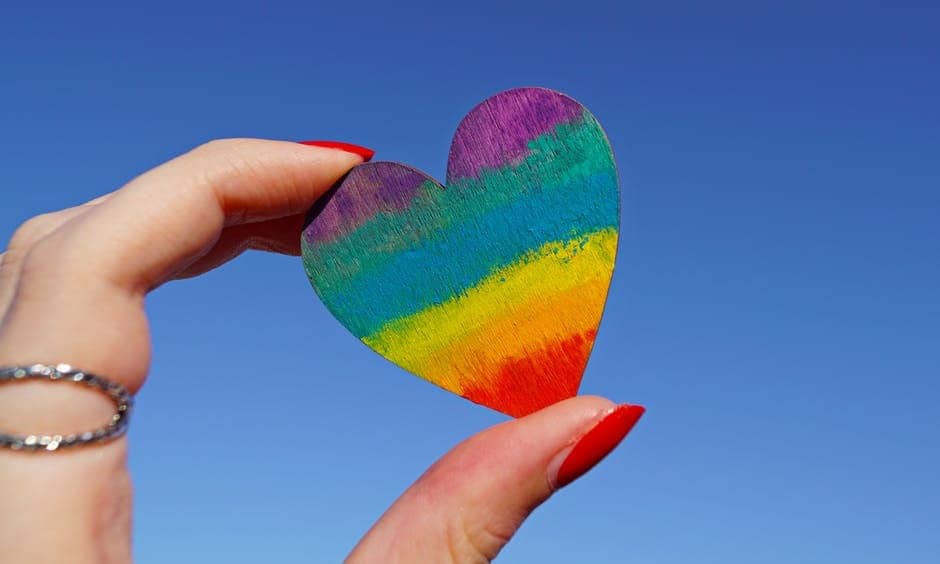Those who are in the LGBTQ+ community have plenty to be proud of. June is pride month when the community comes together and celebrates the pride they share in their identities. Pride month also becomes a month of education and awareness about LGBTQ+ issues and activism. One of the most critical and often overlooked issues is mental health among the LGBTQ+ community. This article will discuss mental health and substance use statistics, what causes those statistics, and what resources are available to those in the LGBTQ+ community.
LGBTQ+ Mental Health and Substance Use by the Numbers
It is estimated that 14% of the population worldwide identifies as a part of the LGBTQ+ community. LGBTQ stands for lesbian, gay, bisexual, transgender, and queer. The plus includes all of the other identities under the LGBTQ umbrella. Many studies have shown that substance use, suicide, and mental health disorders affect this community substantially more than the general population. A research study found higher substance use and poorer mental health in LGBTQ+ people correlated with a traumatic experience when coming out to parents about their identity. A similar study found that LGBTQ+ people surveyed across the U.S. reported higher levels of emotional stress and mental health disorders.
Substance use is also highly prevalent among the LGBTQ+ community. Some studies show that gay men use substances at a higher rate than the general population. Another study showed that bisexual women reported more dangerous drinking practices than heterosexual and lesbian women. Many studies on the transgender community have found high rates of methamphetamine use, with the highest percentages of 4-46% in Los Angeles and San Francisco.
How Oppression Plays Into Addiction and Poor Mental Health
While there has been some progress in how we treat LGBTQ+ people in society, there is still a long way to go. Many people in the community still face discrimination, hate, lack of physical and emotional safety, and even fear death in some cases. This dangerous inequality is especially prevalent when marginalized identities intersect. For example, trans women of color face the most severe discrimination and have the highest poverty rates among the LGBTQ+ community. They face racial and transphobic violence and experience the most increased sexual violence and abuse rate regarding all LGBTQ+ members.
Issues that specifically impact poor mental health or contribute to substance use include:
- Post-traumatic stress disorder (PTSD) from violence and discrimination starting as early as childhood
- Higher rates of homeless and poverty compared to the general population
- Policies that limit LGBTQ+ rights and choices
- Fear of getting help from healthcare providers, police, and substance use treatment centers
- Lack of substance-free LGBTQ+ friendly spaces
The “A” In LGBTQIA
The A in the acronym can stand for ally or asexual, depending on who you ask. Allies do have a place in the community as people of support. However, many who want to help out the community don’t know where to start or aren’t educated on important issues.
Here are some ways you can help:
Educate Yourself and Unlearn Stigmas
One of the primary sources of discrimination is ignorance. Learn as much as you can about the LGBTQ+ community and its history. Understand the genuine issues threatening the community and contributing to poor mental health, substance use, and lack of access to resources.
Speak Up in Your Community
If you see discrimination in your community, point it out. Share your voice on social media and spread awareness in your community. Allies come from a place of privilege and hold more power than those with marginalized identities. Use that privilege to make these issues heard, increasing the chances of taking them seriously by the outside communities.
Partake in Activism
Learn about the real issues that affect LGBTQ+ adults and youth. Stand side by side with people and demand better in the community and at home, hopefully fueling a funneling out to all facets of society. Work with those in the community and volunteer your help.
Listen to LGBTQ+ Voices
Learn directly from those who are affected by discrimination and marginalization. Listen to multiple people and multiple sources that represent many of the diverse identities in the LGBTQ+ community. Read books by LGBTQ+ authors. Watch documentaries about the LGBTQ+ experience.
Donate to LGBTQ+ Organizations
There are plenty of fantastic LGBTQ+ organizations working to improve the lives of those in the community. These organizations provide mental health services for LGBTQ+ adults and youth and raise money for LGBTQ+ people who are homeless or impoverished. They also work to provide education within the community about their realities and their experiences.
Pride month is a perfect time for allies to learn about the LGBTQ+ community and step up to be an advocate. Every year, society becomes more and more educated and accepts other lifestyles.
Thankfully, things are better than they were during the first pride parade in 1970 in New York, but there is still a long way before people in the LGBTQ+ community are genuinely viewed as equal. If you are a part of the LGBTQ+ community, you aren’t alone. There is help available. Villa Oasis San Diego is a proud ally and supports you and your identity. Our rehab center is trauma-informed and considers your history and whole identity when providing you care. Our holistic healing doesn’t ignore the essential parts of your story.
If you would like to learn more about LGBTQ+ mental health and their community, please call us today at (323) 739-8673.




